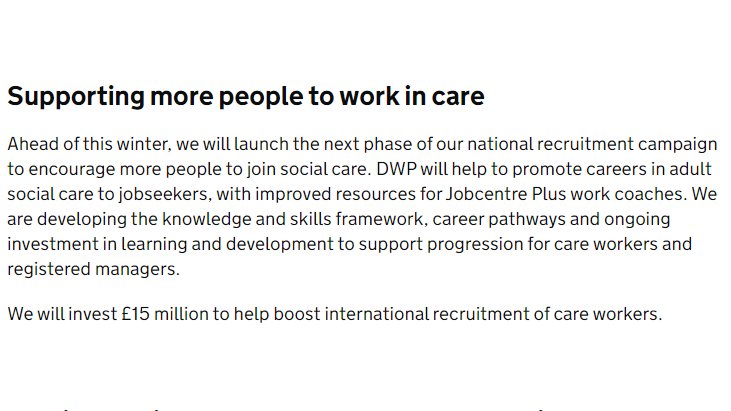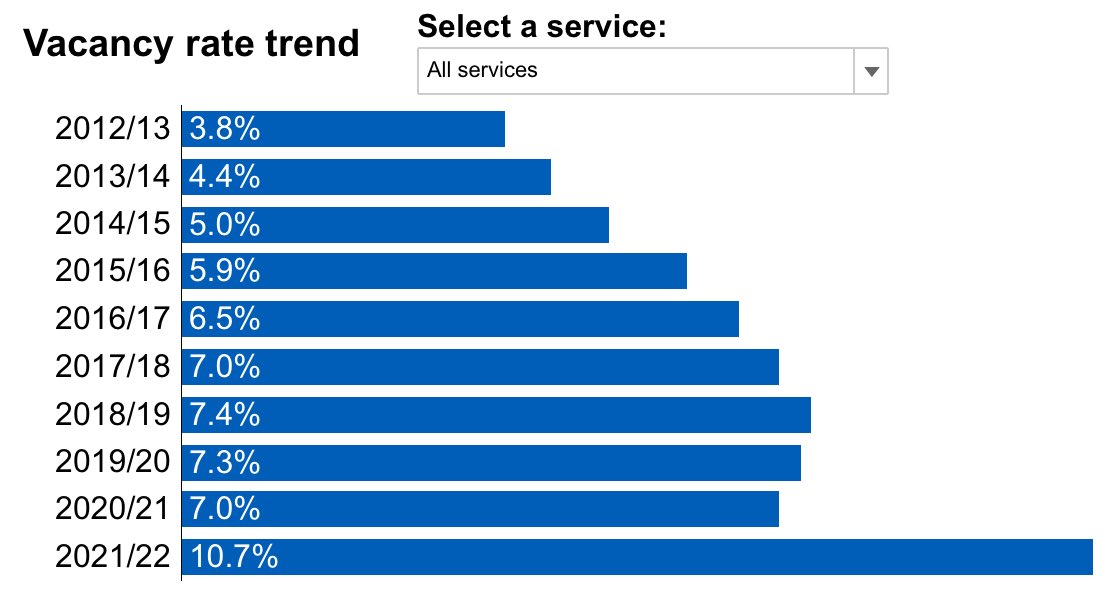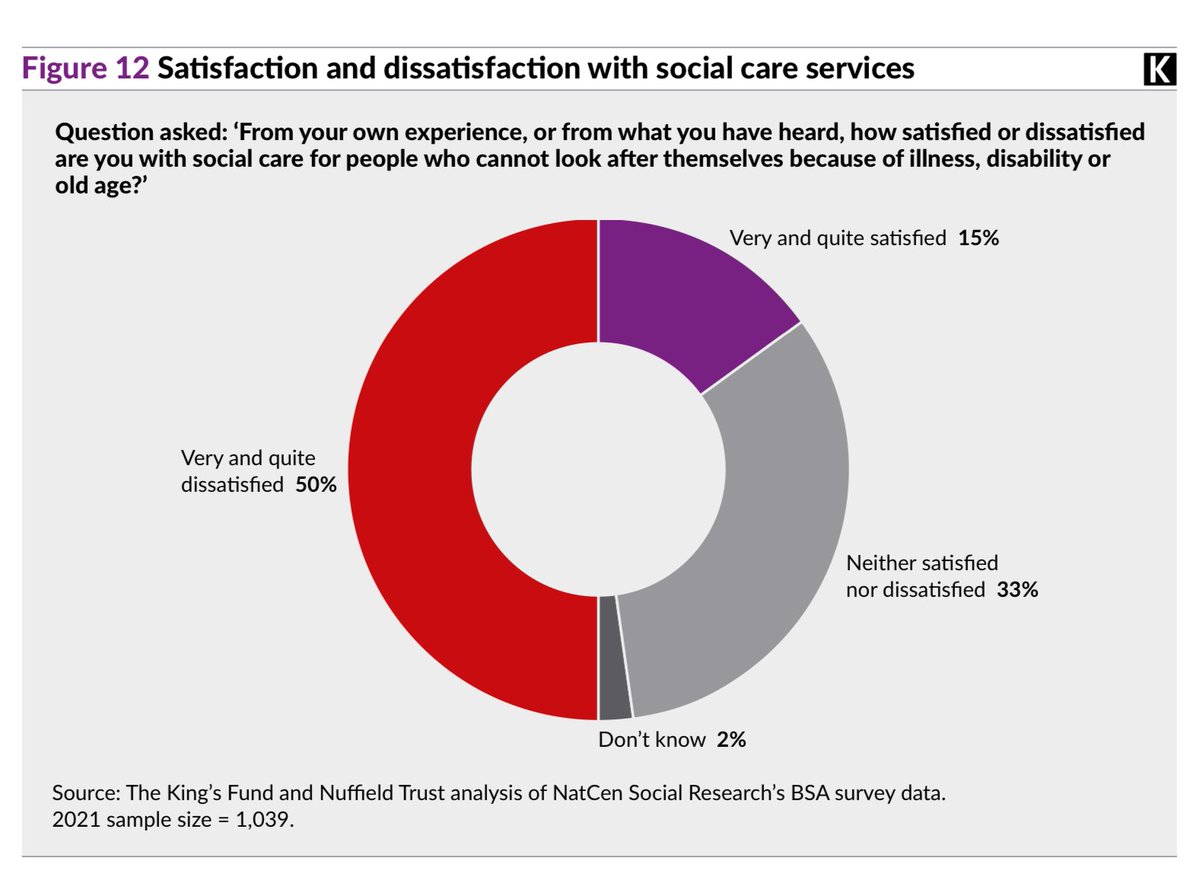
The plan announced today by @theresecoffey to support #socialcare falls far short of the measures needed to ensure people get the support they need this winter and beyond. It was also, alarmingly, saw social care entirely through an NHS| lens. A thread. gov.uk/government/pub…
There were 3 measures announced, of which only one has real resources - a £500m fund to support hospital discharge. Details are scarce but it looks like targeted reinstatement of parts of the hospital discharge fund and recruitment/retention fund, both scrapped earlier this year. 

The money is of course welcome and necessary but its short term nature and limited focus on discharge means it offers no more than a couple of stitches to the gaping wound that is the state of #socialcare at the moment.
The second measure involves a new national recruitment campaign for #socialcare and a tiny pot of money to boost international recruitment. Again, there is nothing wrong with either measure just that they are nowhere near the scale of the response that is required on workforce. 

The third measure is the most imprecise: providers will be 'supported' to digitise. Again, that's fine but it's absurd to suggest that this is going to have any real immediate impact on the sector's capacity to support more people. 

One sentence offers hope but also rings alarm bells: the promise of 'further action from next year to rebalance funding across health and care'. If that means more money for #socialcare, great. But not at the expense of vital NHS spending on e.g. the backlog. More detail needed.
That sentence is also at odds with the strong NHS focus of the statement, from the initial 'patients are my top priority' to the key measure being on hospital discharge. It's good that @theresecoffey is at least talking #socialcare, but this is a terribly narrow perspective on it
All in all, this is another of those health and social care statements that does little to offer hope that a government has the will to tackle - of perhaps even see - the deep-rooted issues facing #socialcare.
• • •
Missing some Tweet in this thread? You can try to
force a refresh








